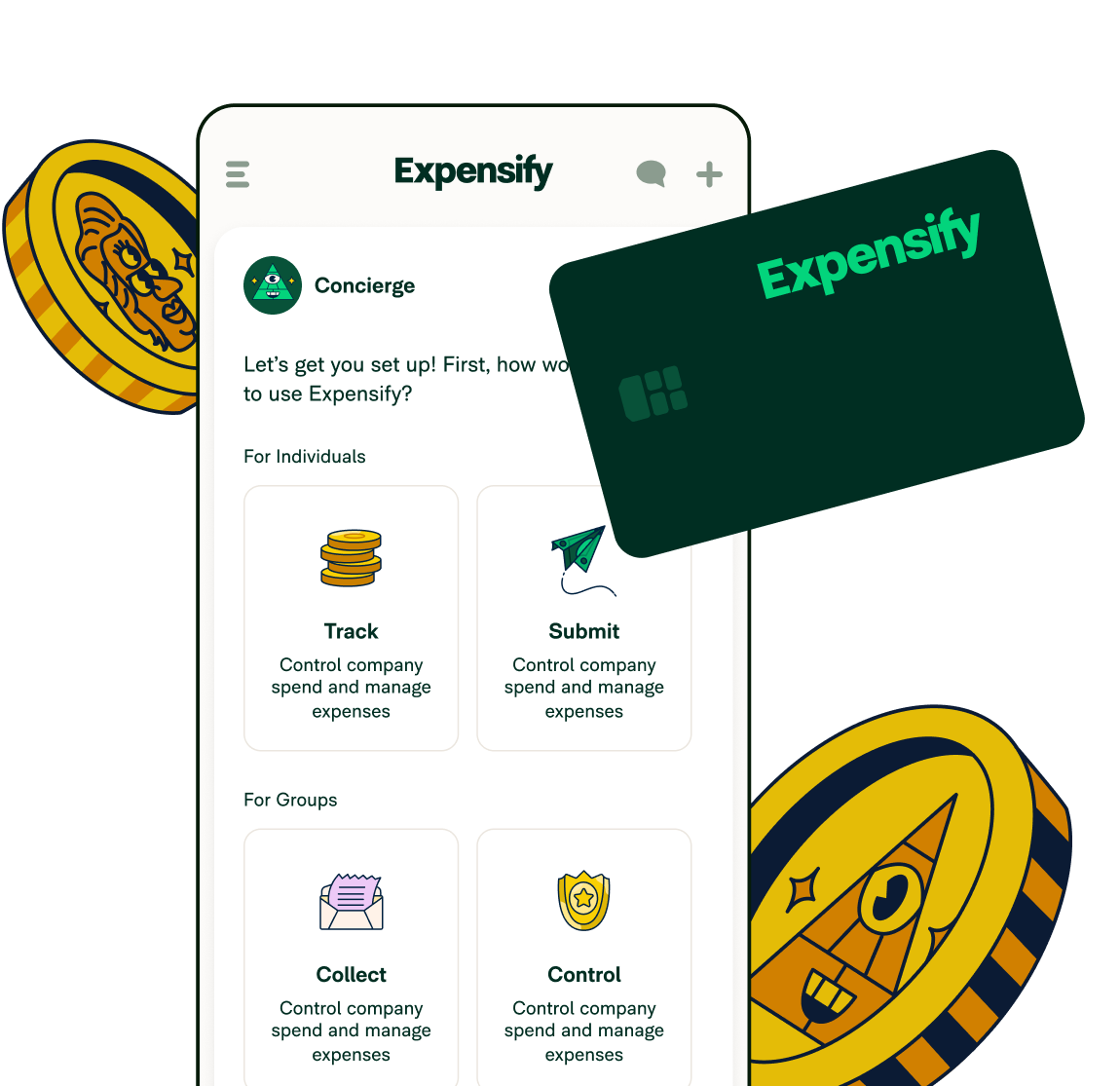The ultimate guide to bookkeeping for small businesses

As a small business owner, the importance of proper bookkeeping can’t be stressed enough.
If you’re not familiar, bookkeeping is the process of recording your business's financial transactions so that you know exactly how much you're making and where your money is going at any given moment. And if your goal is to run a stable, profitable business, you have to get a handle on bookkeeping.
In this guide, we’ll walk you through everything you need to know about how to do bookkeeping for a small business — so you can set yourself (and your business) up for success.
Why is bookkeeping important for small businesses?
While crunching numbers and keeping track of expenditures can sometimes feel like a chore, bookkeeping is more than worth the effort in the end. Here are a few reasons why getting your books right is so crucial:
Financial clarity: Accurate bookkeeping gives you a clear picture of your financial status, helping you understand where your business stands at any moment.
Budget management: Business bookkeeping allows you to monitor your budget effectively, ensuring that you're on track with your financial goals and making adjustments as necessary.
Informed decision-making: With accurate financial data, you can make informed decisions about investments, expansions, and other important business strategies.
Tax preparation: Well-maintained books make tax time less stressful, ensuring that you're ready to file with all your financial information in order.
Compliance and reporting: Proper small business bookkeeping helps you comply with legal and financial regulations, avoiding costly penalties.
How to do bookkeeping for a small business
Mastering bookkeeping for your small business involves a few key steps. Let’s break down these essentials below.
1. Choose an entry system
Before you jump in, you’ll have to choose an entry system. There are two main bookkeeping methods: single-entry and double-entry. Let’s break down how to understand which is best for your business.
Single-entry: This method is ideal for smaller businesses with minimal transactions. This system records each transaction only once, either as an income or an expense.
Double-entry: This method is more complex but provides a more comprehensive view of your finances. Each transaction is entered twice, as a debit or credit. This method is suitable for businesses with more significant transactions or those seeking a more detailed financial report.
Your choice depends on your business size, transaction volume, and how detailed you want your financial records to be. Don’t forget to choose a method before you start your bookkeeping process since the method you choose determines how and where you record each financial transaction.
2. Choose an accounting method
News flash: bookkeeping and accounting are two different things. Once you’ve chosen your entry system, you’ll need to decide which accounting method you’ll use. There are two primary types of accounting:
Cash-based: This type of accounting records transactions when cash changes hands. It’s the more straightforward of the two methods and suitable for businesses that deal primarily in immediate transactions.
Accrual: This type of accounting records transactions when they are incurred, regardless of when the cash is exchanged. This method offers a more accurate picture of financial obligations and revenues over time, suitable for businesses with longer sales cycles.
When choosing your accounting method, think about not only your current business operation and cash flow but also your future growth plans. A method that suits your present needs and scales with your business can save time and effort in the long run, ensuring smoother financial transitions as your business evolves.
3. Select an accounting software
One of the easiest ways to simplify business bookkeeping is to ditch outdated manual accounting processes.
Accounting software automates and streamlines your bookkeeping process, eliminating errors and helping your team save time. This software can manage invoices, track expenses, and even integrate with other expense management tools (like ours).
Choosing software that's intuitive and fits your business model can make a world of difference in managing your finances effectively. Some of the accounting software available for small businesses include:
4. Record every financial transaction
When it comes to small business bookkeeping, there’s no such thing as too much detail. Ensure every financial transaction, no matter how small, is recorded. This comprehensive recording forms the backbone of your financial insights, so you can rest assured nothing falls through the cracks.
Luckily, with tools like Expensify, this process becomes more hands-off and manageable, allowing you to capture and categorize transactions accurately (and automatically).
5. Keep all your receipts
Maintaining a thorough record of all receipts makes a huge difference when it comes to proper bookkeeping.
Receipts serve as proof of purchase, which is essential for verifying the transactions recorded in your books. This verification is crucial, not only for maintaining accurate financial records but also for tax purposes. Receipts are often required to validate business expenses, especially when it comes to tax deductions. Keeping them organized helps you quickly reference and double-check your financial data when needed.
While this process is necessary, nobody likes keeping track of paper receipts. Fortunately, you don’t have to. With tools like our receipt scanner, you can snap a single photo and maintain a digital record of your receipt.
6. Track accounts receivable and payable
Keep a close eye on what customers owe you (accounts receivable) and what you owe others (accounts payable).
Tracking accounts receivable ensures you know exactly what's owed to you, helping to predict your incoming revenue and manage your resources effectively. Similarly, staying on top of accounts payable helps you avoid late payments and maintain good relationships with suppliers. Maintaining both ensures a healthy and steady cash flow for your business.
7. Create a bookkeeping schedule
When it comes to small business bookkeeping, consistency is key. That’s why it’s important to establish a regular schedule for updating your books. The right schedule for your business can vary based on several factors.
If your business has a high volume of transactions daily, weekly bookkeeping might be best to keep your records current and manageable. This frequent schedule can help you stay on top of cash flow and quickly address any discrepancies.
On the other hand, if your business has fewer transactions or you're just starting out, a monthly bookkeeping routine during month-end close might be sufficient. This approach aligns well with preparing monthly financial statements and gives you a comprehensive view of the month's activities.
Ultimately, the best schedule is one that fits the rhythm of your business operations and ensures that your financial data is always accurate and up to date. Adapting your bookkeeping frequency to match your business needs helps maintain a clear financial picture and supports better decision-making.
8. Make sure everything is paid on time
Paying bills on time and in full is essential for maintaining good relationships with vendors and avoiding late fees. While this might feel like a given, it’s easier than it sounds to let things fall through the cracks.
Fortunately, automated systems like Expensify can help ensure bills and invoices are paid on time, contributing to smooth financial operations and good credit standing — so you can take one more thing off your to-do list and get back to business.
9. Plan for taxes
While tax season seems to be ever-looming, consistent bookkeeping ensures you stay ahead of the game. Being proactive with tax planning saves you time and stress, ensuring all necessary documents are in order before the deadline approaches.
Plus, organized records and documented receipts make it easier to identify deductible expenses, comply with tax regulations, and stay audit-ready.
If tax season is still a source of stress, check out these tax tips for small businesses.
10. Check in with an accountant
Even with expense management and accounting software on your side, consulting with a professional accountant can provide additional peace of mind and specific, tailored advice.
Accountants offer expert knowledge, help optimize your tax strategy, and ensure your bookkeeping aligns with best practices. We recommend consulting with a professional to make sure your books are headed in the right direction.
Expert small business bookkeeping tips
Along with the above steps, there are a few ways that you can further enhance your bookkeeping practices. Here are some expert bookkeeping tips tailored for small businesses:
Stay organized: Keep your financial documents well-organized. This practice not only simplifies bookkeeping but also saves time during audits or tax season.
Embrace technology: Leverage technology to automate and streamline your bookkeeping processes.
Stay informed: Keep up-to-date with changes in tax laws and financial regulations that can impact your business's bookkeeping.
Prioritize accuracy: Always double-check your entries for errors. Accurate bookkeeping is essential for reliable financial insights and decision-making.
Plan for major expenses: Anticipate and plan for major expenses, such as equipment purchases or expansion costs, to avoid financial strain.
Implementing these tips can significantly improve the efficiency and accuracy of your bookkeeping, setting a solid foundation for your business's financial management.
Small business bookkeeping pitfalls to avoid
Navigating bookkeeping can be tricky, especially for small businesses. Luckily, being aware of common pitfalls can help you avoid them altogether. Here are some challenges to watch out for:
Mixing personal and business finances: Keep your personal and business transactions separate to avoid confusion and ensure clearer financial records.
Neglecting to record small transactions: Even minor expenses can add up. Failing to record these can lead to inaccurate financial statements.
Procrastination: Delaying bookkeeping tasks can result in a backlog of work and errors. Regular updates are key to maintaining accurate books.
Ignoring receivables: Not keeping a close eye on what is owed to you can affect your cash flow and financial planning.
Failing to review financial reports: Regular review of financial reports is crucial to understanding your business’s financial health and making informed decisions.
Overlooking tax deadlines: Missing tax deadlines can lead to penalties and interest charges. Keep track of all tax obligations and deadlines.
By being mindful of these pitfalls and adopting a proactive approach to your bookkeeping, you can ensure more accurate and efficient financial management for your small business.
FAQs about bookkeeping for small businesses
-
A dedicated bookkeeper or an accounting professional should handle small business bookkeeping. This ensures accurate record-keeping, and compliance with financial regulations, and provides valuable insights for business decisions.
For smaller businesses with limited transactions, the owner or a skilled employee might manage this role. As the business grows, however, hiring a specialist or using an automated tool like Expensify becomes essential for efficiency and accuracy.
-
The best bookkeeping method for small businesses is typically the double-entry system, especially as the business grows and transactions become more complex.
-
When budgeting for a bookkeeper, start by looking at your business size and how many transactions you usually handle. Find out how much bookkeepers charge in your area or how much bookkeeping software costs. Set aside a part of your budget for this, keeping in mind that spending top dollar on a good bookkeeper can save you time, reduce mistakes, and prevent expensive errors down the road.
Bookkeeping becomes a breeze with Expensify
As a small business owner, managing the minutia of bookkeeping can feel overwhelming. Luckily, with tools like Expensify, the process gets a whole lot easier.
If you’re ready to de-stress while your books get more accurate, you’re in the right place. Sign up today to see how simple bookkeeping can be.





